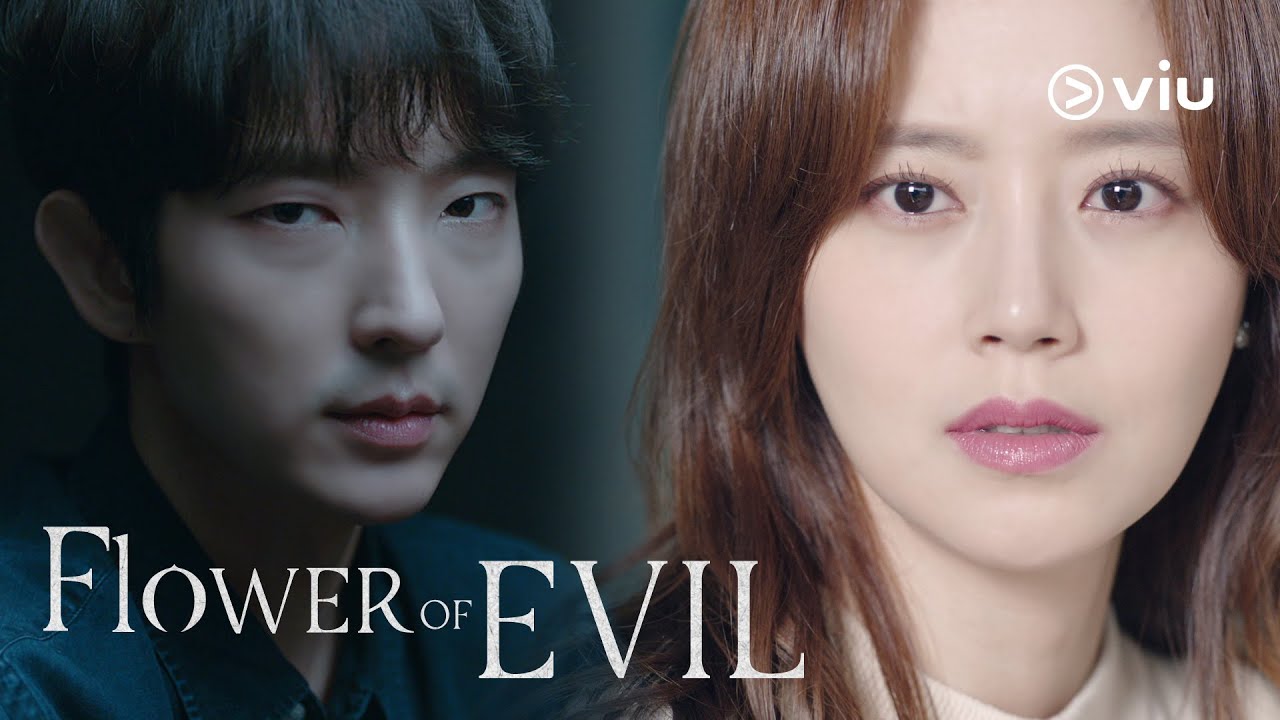Flower of Evil Drama Review

Flower of Evil Drama Review: Flower of Evil (2020) isn’t your typical Korean romance drama. It delves into the murky depths of human psychology, weaving a suspenseful narrative about a seemingly perfect husband harboring a dark secret. This review explores the show’s strengths, analyzes the complex relationship between the central characters, and examines how it delves into themes of truth, manipulation, and the nature of identity.

A House of Cards: Unraveling the Facade of a Perfect Life
Hee-sung is a charming metalworker who appears to be the ideal husband to his detective wife, Chae-won. They present a picture-perfect image of domestic bliss, but cracks begin to appear when Chae-won investigates a cold case with an uncanny resemblance to Hee-sung’s past. As she delves deeper, she uncovers a web of lies and a hidden identity that shatters their seemingly perfect life.
A Battle of Wills: Love vs. Justice
The heart of the show lies in the complex relationship between Hee-sung and Chae-won. Their love story is unconventional and fraught with tension. Chae-won, a woman of unwavering moral compass, grapples with the revelation that the man she loves might be a monster. Hee-sung, shrouded in layers of deception, is forced to confront his past and fight for his fragile sense of normalcy.
The show masterfully explores the emotional turmoil they face. Can love survive in the face of such a devastating truth? Can justice be served without sacrificing their fractured bond? These questions keep viewers on the edge of their seats, unsure of whom to root for and what constitutes the truth.
Beyond Black and White: Exploring the Periphery of Morality
Flower of Evil doesn’t paint the world in black and white. Hee-sung is not a one-dimensional villain. The show delves into the reasons behind his actions, hinting at a tragic past that shaped his present persona. This exploration of his motivations allows viewers to understand, though not necessarily condone, his choices.
Similarly, Chae-won’s unwavering pursuit of truth comes at a cost. Her relentless investigation strains her relationship and forces her to confront uncomfortable truths about herself. These complexities add depth to the characters and the narrative, sparking conversations about morality, forgiveness, and the enduring power of love.
A Gripping Narrative: Twists and Turns Keep You Guessing
The show boasts a suspenseful and well-paced narrative. Each episode throws in new revelations, keeping viewers guessing about Hee-sung’s true identity and the extent of his involvement in past crimes. The supporting characters, particularly a mysterious childhood friend of Hee-sung’s, add further layers of intrigue and raise questions about loyalty and manipulation.
Masterful Performances: Fueling the Emotional Rollercoaster
The success of Flower of Evil hinges on the phenomenal performances of the lead actors. Moon Chae-won delivers a nuanced portrayal of Chae-won, a woman torn between love and duty. Her character arc is captivating, showcasing her vulnerability, strength, and unwavering determination. Lee Joon-gi excels as Hee-sung, masterfully conveying the character’s enigmatic charm and hidden depths.
A Visual Tapestry: Reflecting the Inner Turmoil
The show’s visual style complements the narrative perfectly. The use of muted color palettes and subtle lighting reflects the darkness lurking beneath the surface of Hee-sung and Chae-won’s seemingly perfect life. The camera work is meticulous, often focusing on facial expressions and minute details to enhance the emotional tension.
Not for the Faint of Heart: Exploring Dark Themes
Flower of Evil tackles some disturbing themes, including violence, child abuse, and manipulation. The show doesn’t shy away from portraying the psychological damage these experiences inflict on individuals. Viewers who are sensitive to such content might find it unsettling.
A Haunting Exploration of the Human Psyche
Flower of Evil transcends the boundaries of a typical Korean drama. It’s a thought-provoking exploration of human psychology, the complexities of love and deception, and the lengths people go to in order to protect themselves and their loved ones. The show’s strength lies in its ability to evoke a range of emotions – fear, sadness, empathy, and a lingering sense of ambiguity. Although the ending might leave some viewers yearning for more definitive answers, it compels them to ponder the complexities of human nature and the enduring power of hope.

Leave a Comment